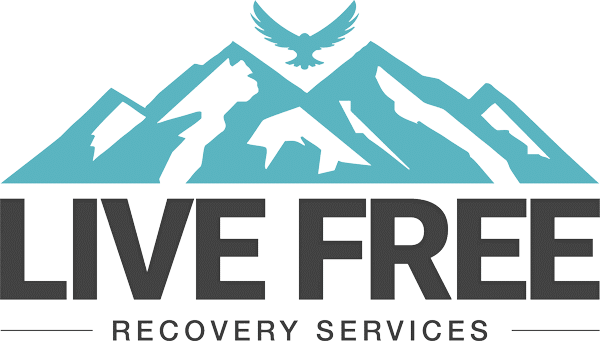FREEDOM THROUGH ACTION
Call us at (888) 610-2847
We offer a full continuum of care to help every patient experience a safe,
long-term recovery from drug and alcohol addiction.
Substance abuse disorders affect more than 20 million people in the United States.
More Statistics on New Hampshire Drug and Alcohol AbuseWhen left untreated, substance abuse can lead to numerous problems, including job loss, financial distress, impaired relationships, health problems, and death.
LEARNING
How Does Drug Rehab Treatment Work?
Drug rehab treatment programs at Live Free Recovery offer a variety of approaches to meet the individual needs of each patient so that he or she can have the best chance of successfully achieving recovery.
Drug addiction has become a serious issue across the U.S. For example, opioid drug addiction has become such an issue in the United States, that we are currently in an opioid epidemic. Opioids aren’t the only legal substances that U.S. residents are abusing to the point of developing drug addictions though. Many U.S. residents also suffer from addictions to legal or semi-legal substances such as alcohol and marijuana. There are also countless illegal substances that people in the U.S. are addicted to, such as heroin, cocaine, meth, etc.
The only way to lessen or dissolve the drug addiction problem in the United States, and even the world, is to have people that suffer from drug addictions receive drug addiction treatment. It’s also important for all people to be aware of the signs, symptoms, and stages of drug addiction. That way friends and family members of people that suffer from drug addiction can recognize those signs, symptoms, and stages and help the people that they love achieve recovery.
What is Drug Addiction?
Drug addiction occurs when a person experiences chemical changes in his or her brain due to continuous substance abuse. As a result, people that suffer from drug addictions struggle to stop using substances. All people that suffer from drug addictions also struggle with drug dependency, or the experience of withdrawal symptoms whenever they minimize or discontinue their substance use. Because of how difficult it is to overcome drug dependency and addiction on one’s own, it’s important that people that struggle with these issues receive drug addiction treatment.
Causes of Drug Addiction
There are many risk factors that can cause people to develop drug addictions. This is especially true if those risk factors trigger the desire to abuse substances in people that are already biologically susceptible to developing drug addiction. Factors that often cause people to start abusing substances to the point of developing drug addictions are described below.
- Living in areas with high poverty, crime, and drug use rates
- Experiencing any sort of discrimination
- Having an unstable home life
- Suffering from a physical disability
- Being exposed to high levels of stress
- Being exposed to high levels of violence
- Having a genetic predisposition to drug addiction
- Having close relatives abuse drugs
- Starting to abuse drugs at an early age
- Suffering from mental illness
Signs of Drug Addiction
Because of the numerous possible causes of drug addiction, there are many signs of drug addiction that people often exhibit. Some of the most common signs of drug addiction include:
- Having a desire to use that substance every day
- Taking more drugs than prescribed or taking drugs for a longer period of time than prescribed
- Using all of one’s money on buying substances
- Going to different pharmacies and places to receive prescription drugs
- Continuing to abuse drugs even if its causing problems in one’s life
- Having problems at school or at work do to drug use
- No longer getting along with friends and family
- Getting a new social circle
- No longer caring about personal hygiene
- No longer doing activities that one once enjoyed
- Frequently getting sick
- Stealing
- Lying
- Lying about one’s whereabouts
- Having financial issues
Drug Addiction Symptoms
Just as there are many signs of drug addiction, there are also many different drug addiction symptoms. Drug addiction symptoms vary based on the particular drug(s) that a person is abusing and addicted to. For example, the symptoms of addiction to a stimulant drug may include extreme bouts of energy, euphoria, or alertness while the symptoms of addiction to a depressant drug may include depression and drowsiness. Some common addiction symptoms to a wide variety of drugs include the following:
- Having intense cravings for drugs
- Feeling the need to use the drug every day, several times a day
- Needing more and more of the drug to feel its effects
- Exhibiting more risky behavior
- Irritability
- Feelings of euphoria
- Experiencing sudden highs and lows
- Difficulty concentrating
- Anxiety
- Depression
- Hallucinations
- Nausea and/or vomiting
- Increased heart rate
- Delirium
- Panic attacks
- Paranoia
- Memory issues
- Dizziness
- Drowsiness
- Dilated pupils
- Mood changes
- Tremors
- Seizures
- Fatigue
Stages of Drug Addiction
There are four main stages of drug addiction. While many people never progress further than the first stage of drug addiction, people that reach stage two and further tend to develop full-fledged substance addictions.
Stage 1: Experimentation
The first stage of drug addiction is experimentation. During this stage, people occasionally dabble in substance use to see what it’s like. Oftentimes, people enter the first stage of drug addiction during their teenage years. While experimentation with drugs for many people doesn’t lead to drug addiction, it can lead people that already exhibit the risk factors for drug addiction and/or are biologically more susceptible to developing drug addiction down the path towards developing substance use disorders.
Stage 2: Social or Regular Use
People that enter the second stage of drug addiction greatly increase the level and frequency of drug use. As a result, such people put themselves in a position to start to exhibit some of the signs and symptoms of drug addiction.
People that socially and/or regularly abuse substances should take note if they start to exhibit behavior changes or changes in their physical health and well-being. People that continue to abuse substances when they start to notice that doing so is causing them to exhibit physical and behavioral changes will likely develop drug dependency and/or addiction down the line.
Stage 3: Risky Use/Abuse
The transition from stage two of drug addiction to stage three of drug addiction is sudden, yet subtle. Once people enter the third stage of drug addiction though, they are fully going down the path towards addiction. This is because people in the third stage of drug addiction are now prioritizing drug use over other aspects of their lives.
People in the third stage of drug addiction start to exhibit physical and psychological cravings for substances. They also start to exhibit some of the other signs and symptoms of drug addiction such as fatigue, depression, or irritability.
Stage 4: Drug Addiction and Chemical Dependencies
Once people enter stage four of drug addiction they have developed drug dependency and addiction. Thus, people in this stage of drug addiction need to attend drug detox and receive drug addiction treatment to get them to stop abusing substances.
Drug Addiction Treatment
Individuals that need to receive drug addiction treatment should do so at a facility that provides drug addiction treatment programs such as those of Live Free Recovery. There are various levels of care when it comes to drug addiction treatment. The level of care that a person should receive when receiving drug addiction treatment depends on the severity of his or her substance addiction along with his or her personal needs. For example, people that suffer from severe substance addictions and need 24/7 care and monitoring to remain sober during rehab should receive inpatient or residential treatment.
Individuals that suffer from moderate to severe level substance addictions but can’t afford to take off from life completely while in treatment should receive the most intense form of outpatient treatment, which is partial hospitalization program (PHP) treatment.
PHP treatment requires their patients to attend rehab for approximately five to eight hours a day, five to seven days a week. PHP treatment, or any form of outpatient treatment, is ideal for anyone that has a healthy home life and environment that he or she can remain sober in in-between treatment sessions.
Outside of PHP treatment, there are two other forms of outpatient rehab. These two forms of outpatient rehab include intensive outpatient program (IOP) treatment and standard outpatient program (OP) treatment.
IOP programs require their patients to attend rehab for approximately a few hours a day, three to four days a week. OP programs require their patients to attend rehab for approximately one or two hours a day, once or twice a week.
Receive Drug Addiction Treatment At
Live Free Recovery
Individuals that want to receive quality drug addiction treatment can do so at Live Free Recovery. Although Live Free Recovery specializes in providing sober living homes to people that are newly recovered from drug addiction, it does offer anyone that needs it, high-quality outpatient forms of rehab. Thus, individuals can receive the drug addiction treatment that they so desperately need at Live Free Recovery and have sober living home services afterward. It doesn’t get any better than that when it comes to drug addiction treatment. To learn more about the drug addiction treatment services that we offer here at Live Free Recovery, feel free to contact us anytime.
Inpatient Programs
Patients whose substance abuse is severe enough to have negatively affected their career, education, or personal relationships may benefit most from an inpatient treatment program. Inpatient drug rehab programs, which can be short- or long-term, are also especially beneficial for individuals who lack a supportive home environment. Inpatient programs allow them to build new skills and develop a new daily routine in a safe environment.
Inpatient drug rehab treatment centers also offer other beneficial services, such as yoga classes, exercise facilities, and nutritious meals, all of which can complement the recovery process.


Partial Hospitalization Programs
Partial hospitalization programs, also often referred to as day treatment, offer the same therapeutic services found in inpatient programs, but without requiring residency. Partial hospitalization programs are more intensive than traditional outpatient treatment programs and may involve treatment for several hours a day, three to five days a week. Partial hospitalization programs can be beneficial for patients in need of a highly structured and integrated treatment program but do not require 24-hour medical supervision.
Outpatient Drug Treatment
Outpatient treatment programs are less intensive and are designed to work around patients’ busy schedules. Outpatient drug rehab is often offered on a daytime or evening basis, which allows patients to continue with their normal work, school, or family lives.
Patients may enroll in an outpatient program from the outset or may transition to an outpatient program after the successful completion of an inpatient treatment program.

